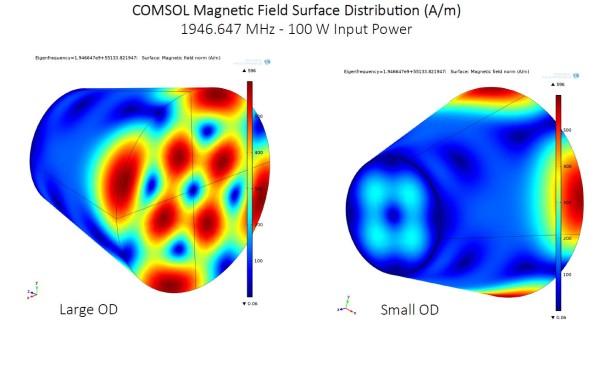Every few months now, the popular press goes wild with claims that there’s a new engine out there, one that produces thrust without any exhaust, violating the fundamental law of conservation of momentum.
While science is, fundamentally, an experimental endeavor, this is far, far more likely to be a case of our own, human failings than it is a case of revolutionary new physics. There are distinct patterns we fall into that allow us to fool ourselves, and the root of it is that we, ourselves, simply do not have the resources and capacities to become experts in everything, and yet we do not trust those who have done exactly that.
 Image credit: Mark Rademaker, privately (via Twitter) at https://twitter.com/yard2380.
Image credit: Mark Rademaker, privately (via Twitter) at https://twitter.com/yard2380.


Where is the substance of this article? What is the point? NASA just announced a couple of days ago that the em drive is developing thrust amnd none of their recent ideas violate any laws of physics.
If you get a chance, you really ought to look up the "Dean Drive". There's very little new under the sun . . .
@1 - Some more substance: the Eagleworks equipment was set up in a way that did not properly account for the equipment's interaction with the Earth's magnetic field and the Lorentz force that may result from that. One of the Eagleworks scientists made a recent post where he said that they modified the experimental set up to reduce that contribution by a factor of 100, ran some more tests, and still see anomalous thrust. But (a) nothing's been published yet and (b) they still acknowledge they have experimental set up problems. From Paul March, from his forum post that started this brouhaha:
IOW, their equipment components are undergoing thermal expansion when they turn the thing on, and it's screwing with their measurements. Given the very small amount of thrusts involved and the extraordinary nature of their claim, I think its safe to say that they have not yet convincingly ruled out experimental error in favor of some new physics.
In my experience, and this is as true of novel financial instruments as novel devices, it pays to stick with the tried and true until such time as the upstart is strong enough to lift the crown from the king's head.
Until superiority is demonstrated in some application, it can be quite specialized and narrow, there is simply no utility and you are trading on the nebulous virtues of novelty.
Best to just give it time. In twenty years we will either be marveling at how gullible people can be. Or EM drives will be keeping satellites in orbit.
There also was EESTOR, which was supposed to be a supercapacitor which could store amazing amounts of electrical energy. Is the fact that all these "scams" begin with the letter "e" just a coincidence?
@Omega Centauri:
Probably. After all, "e'" is the most common letter in the English language.
As the song says, e's are good, e's are good.
Ebon e's are good.
Excellent writing Ethan. It is nice to know there are people capable of thinking straight in this strange world.
A few years ago I could not solve the problem of HF loss in a welding system, I had all the best "EXPERTS" try to solve it with no luck. then a NON expert maintenance man pointed out two large can like objects. (large hf filters)!!! None of the "experts" noticed this. I will never forget the humble feeling I had, Now I listen to both "EXPERTS" and NON-experts.
So when your mechanic tells you to smack the PC monoitor with the lumphammer, you think "That could work!"?
When a supermodel tells you that you should leave your child unmedicated, you think "Yeah, why not?"?
A non-expert doesn't necessarily have it wrong.
And an expert can be limited in their viewpoint by their expertisse.
For example, what were those "EXPERTS" (why capitalise that?) expert in? HF modulation? Then why would they be thinking of looking at it like an engineer and looking for a part?
And why is your maintenance man a "NON-expert" (and why capitalise the NON?), given that he's going to be taught about how things he's supposed to maintain are built, and this welding thingy is supposed to have some HF filters in, which will be NAMED HF filters, and will have the reason for them written into the maintenance manual, surely he's an expert too? Just not the same thing as your "EXPERT"s.
Indeed, I wonder about the entire story, since HF loss caused in a welding system built with HF dissipating elements really doesn't seem like it's real. If the device is supposed to have those filters, why the hell is it considered a "loss"? You don't consider "voltage loss" in a circuit with a damn great big resistor in it. Because the circuit is supposed to have a loss, that's what the damn resistor is FOR.
The discussion will become interesting after the experiments have been independently repeated with similar recorded measurements.